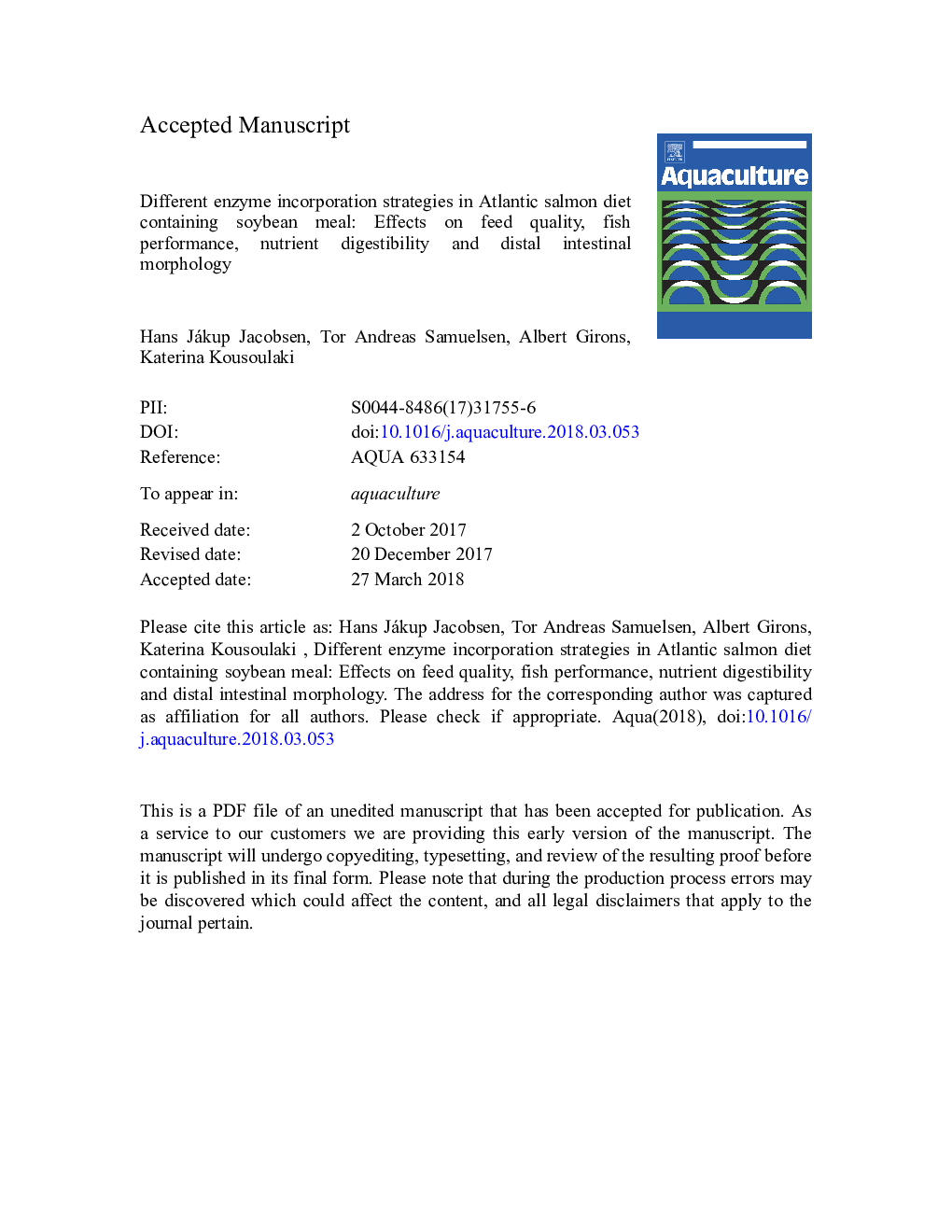| Article ID | Journal | Published Year | Pages | File Type |
|---|---|---|---|---|
| 8493251 | Aquaculture | 2018 | 38 Pages |
Abstract
An enzyme complex containing phytase, protease, xylanase and cellulase produced from Aspergillus niger by solid state fermentation was applied to three Atlantic salmon diets. In these diets soy protein concentrate (SPC) was replaced by de-hulled solvent extracted soybean meal (SBM). Three different enzyme application strategies were evaluated: pre-processing SBM with the enzymes, addition of enzymes in the dry mix prior to extrusion and enzyme coating post extrusion. These diets were tested against one with SBM but without enzyme treatment and another one with SPC instead of SBM. All these diets where tested for fish performance, nutrient digestibility, distal intestine morphology and feed pellet physical quality. The feeding trial lasted for 93â¯days and each diet was fed to triplicate groups of 60â¯g mean body weight Atlantic salmon. In the end of the trial all the groups at least tripled their initial body weight. The diet with coated enzymes had significantly higher apparent digestibility of dietary Fe (Pâ¯Ëâ¯0.001) compared to the other diets. The enzyme pre-processed SBM feed had significantly lower apparent protein digestibility (Pâ¯Ëâ¯0.01) compared to the other diets, the digestibility of some of the dietary amino acids was also significantly lower in this diet. Salmon fed the SBM diet with addition of enzymes in the dry mix prior to extrusion had significantly higher growth and feed intake than the fish fed the SPC diet without enzymes (Pâ¯Ëâ¯0.05). Hardness was significantly and negatively correlated with feed intake (Pâ¯Ëâ¯0.01, râ¯=â¯â0.95) and growth (Pâ¯Ëâ¯0.01, râ¯=â¯â0.95), which may explain the reduced performance of the fish fed the SPC diet without enzymes. None of the diets caused SBM induced enteritis.
Related Topics
Life Sciences
Agricultural and Biological Sciences
Aquatic Science
Authors
Hans Jákup Jacobsen, Tor Andreas Samuelsen, Albert Girons, Katerina Kousoulaki,
